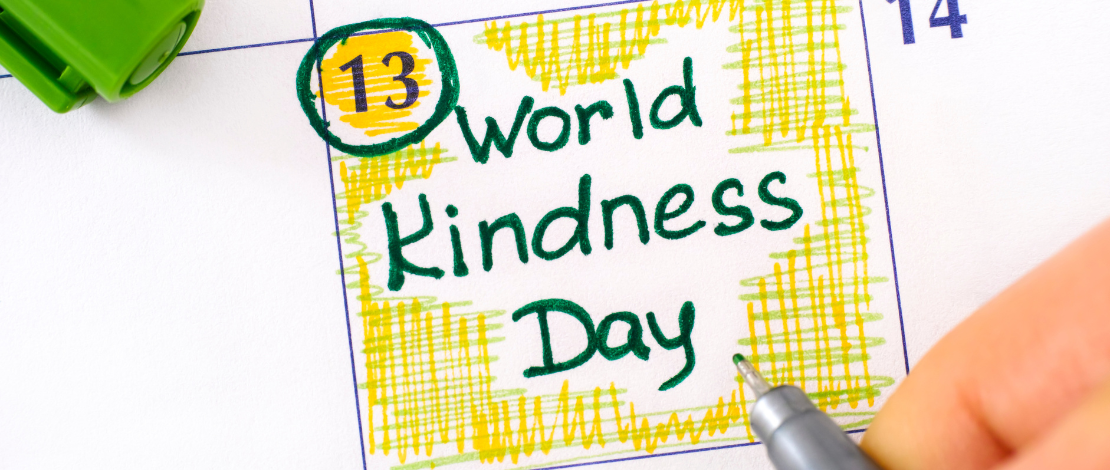Every year on November 13th, the world comes together to celebrate the International Day of Kindness. This day is more than just a reminder to be kind to those around us; it serves as a beacon, encouraging us to integrate kindness into our daily lives, including the workplace. In a setting often dominated by deadlines, targets, and the pressures of performance, infusing kindness and a touch of humor can transform the environment, boosting morale, enhancing teamwork, and fostering a culture where everyone feels valued.
In many organizations, the focus tends to be on efficiency, productivity, and the bottom line. While these aspects are undeniably important, the human element often gets overshadowed. Kindness in the workplace, however, is not just a ‘nice-to-have’ but a crucial component of a healthy organizational culture. When employees feel appreciated and respected, they are more likely to be engaged, motivated, and committed to their work.
Acts of kindness, no matter how small, can have a ripple effect. A simple gesture like holding the door open, offering to help a colleague with a challenging task, or even sharing a kind word can create a positive atmosphere. This atmosphere, in turn, contributes to better collaboration, increased creativity, and higher levels of job satisfaction.
The Power of Random Acts of Kindness
Random acts of kindness are unexpected gestures that can uplift spirits and bring a sense of joy to the recipient. In the workplace, these acts can range from surprising a colleague with their favorite coffee to leaving a handwritten note of appreciation on someone’s desk. These small, spontaneous actions can make a significant impact, often brightening someone’s day in ways that were unanticipated.
Consider the story of Sarah, a project manager at a mid-sized tech company. Sarah was having a particularly tough week, juggling multiple deadlines and feeling overwhelmed. One morning, she arrived at her desk to find a sticky note with the words, “You’re doing great! Keep it up!” and a small bar of her favorite chocolate. That simple, anonymous gesture gave her the boost she needed to tackle the rest of the week with renewed energy. The kindness she experienced didn’t just lift her spirits; it also inspired her to pass it on by doing something kind for a colleague.
These acts don’t have to be grand or costly. The key is in their thoughtfulness and the genuine intention behind them. When employees feel cared for, they are more likely to care for others, creating a positive feedback loop that benefits the entire organization.
Incorporating Humor into Workplace Culture
While kindness nurtures a supportive and respectful environment, humor adds a layer of lightness and joy. Incorporating humor into the workplace can diffuse tension, foster camaraderie, and make the workday more enjoyable. It’s important, however, to use humor appropriately and inclusively, ensuring it never comes at the expense of someone’s feelings or dignity.
Humor can take many forms in the workplace. It might be as simple as sharing a funny meme in a team chat, organizing a light-hearted contest, or starting a meeting with a humorous anecdote. These moments of levity can help break down barriers, making it easier for employees to connect with one another on a human level.
For instance, in a particularly high-stress period, a team lead at a marketing firm decided to introduce “Funny Friday” where each team member would share a joke or a funny story to kick off their weekly meeting. This simple initiative not only lightened the mood but also strengthened the team’s bond, making it easier for them to collaborate and support each other through the stressful times.
The Intersection of Kindness and Humor
Kindness and humor are not mutually exclusive; in fact, they complement each other beautifully. A workplace that encourages both is one where employees feel comfortable, appreciated, and connected.
Imagine a scenario where a team is facing a particularly challenging project. Tensions are high, and stress levels are through the roof. A well-timed, kind-spirited joke or a humorous gesture can lighten the atmosphere, reminding everyone that while the work is important, it’s okay to take a moment to breathe and share a laugh. This not only helps to reduce stress but also encourages a sense of unity, making the team more resilient and effective.
Moreover, humor can be a way to express kindness. For example, sending a funny, personalized e-card to a colleague who’s had a rough day or playfully teasing someone (in a way that’s lighthearted and respectful) can show that you care. It acknowledges their feelings while also offering a moment of joy.
While the benefits of kindness and humor in the workplace are often intangible, they can be measured in various ways. Employee satisfaction surveys, feedback sessions, and even casual conversations can provide insight into how these values are impacting the workplace culture.
The International Day of Kindness serves as a powerful reminder that kindness is not just an occasional act but a way of life, even in the workplace. As we celebrate this day on November 13th, let’s commit to making kindness and humor integral parts of our daily interactions at work. Whether it’s through random acts of kindness, a well-timed joke, or simply taking the time to appreciate those around us, these small gestures can lead to a more positive, productive, and fulfilling work environment for everyone.

